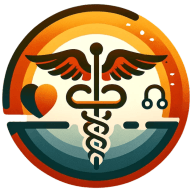What Are Examples of Effective Risk Management Strategies in Healthcare?
Exploring effective risk management strategies in healthcare, we’ve gathered insights from a Founder & CEO who emphasizes the importance of comprehensive staff training. While he shares his approach, we’ve included five additional answers to provide a broader perspective on successful strategies. From implementing advanced EHR systems to ensuring regulatory compliance, here are several effective methods shared by healthcare leaders.
- Implement Comprehensive Staff Training
- Adopt Advanced EHR Systems
- Update Clinical Protocols Regularly
- Conduct Monthly Risk Assessments
- Leverage Predictive Analytics
- Ensure Regulatory Compliance
Implement Comprehensive Staff Training
At Ikon Recovery, one effective risk-management strategy we implemented was the introduction of regular, comprehensive staff training on crisis intervention and emergency response. For example, we developed a simulation-based training program where staff practiced handling various crisis scenarios, such as medical emergencies or behavioral incidents. This proactive approach not only improved our team's preparedness and response times but also significantly reduced the incidence of adverse events. By continuously updating the training based on real-world feedback and emerging best practices, we ensured that our staff remained vigilant and capable of managing risks effectively.

Adopt Advanced EHR Systems
Introducing advanced electronic health record (EHR) systems helps to improve patient care by making information easily accessible for healthcare providers. These systems ensure that all necessary patient data, including medical history and treatment plans, is consolidated in one place. This reduces the likelihood of errors and enhances communication among healthcare professionals.
Additionally, EHR systems assist in identifying potential risks by analyzing patient data patterns. To maximize these benefits, healthcare facilities should invest in the latest EHR technology and train staff accordingly.
Update Clinical Protocols Regularly
Regularly updating clinical protocols and guidelines is crucial to maintaining high standards of patient care and safety. Healthcare is a constantly evolving field, and staying current with the latest research and recommendations helps reduce the risk of outdated practices. Ensuring that all staff members are aware of and follow the latest guidelines minimizes the potential for medical errors.
By doing so, healthcare organizations can foster a culture of continuous improvement and vigilance. Health administrators should prioritize this practice to maintain excellence in care.
Conduct Monthly Risk Assessments
Conducting monthly risk assessment audits is a proactive approach to identifying and mitigating potential dangers within healthcare settings. These audits provide a structured way to evaluate existing processes, pinpoint vulnerabilities, and implement corrective actions. By systematically assessing risks, healthcare facilities can prevent adverse events before they occur.
This systematic approach aids in maintaining a safe environment for both patients and staff. Healthcare leaders should establish regular audit routines to keep safety at the forefront.
Leverage Predictive Analytics
Utilizing predictive analytics for patient care allows healthcare providers to anticipate medical issues before they escalate. Advanced algorithms analyze patient data to forecast potential health problems, enabling early intervention. This data-driven approach improves patient outcomes by preemptively addressing conditions that may otherwise go unnoticed.
By integrating predictive analytics into daily operations, healthcare organizations can enhance their decision-making processes. To leverage this advantage, facilities should incorporate predictive tools into their care strategies.
Ensure Regulatory Compliance
Ensuring compliance with healthcare regulatory standards is fundamental to risk management in healthcare settings. Regulations set by governing bodies are designed to protect patients, staff, and the overall integrity of the healthcare system. Strict adherence to these standards helps avoid legal actions, financial penalties, and damage to reputation.
Compliance also ensures that healthcare providers are using best practices that have been vetted for safety and efficacy. It's imperative for healthcare facilities to routinely review and update their compliance policies.

